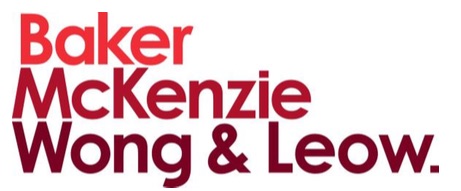6 February, 2020
On 6 January 2020, the Singapore Parliament passed the Healthcare Services Bill (the "Bill"), which replaces the currently enacted PHMCA. The introduction of the Bill is intended to better safeguard the welfare, safety and continuity of care for patients, as well as introduce greatly flexibility in the licensing of healthcare services. It aims to provide an updated regulatory framework in line with the developing needs of Singapore's ageing population and the rapidly-evolving technological advancements in the healthcare landscape.
The new regulatory regime introduces a services-based licensing regime where healthcare service providers would need to obtain a licence based on the type of service they provide. This is a marked change from the premises-based licensing regime traditionally utilised by the PHMCA, where licences were obtained based on the brick-and-mortar premises of healthcare providers.
Clarified scope of healthcare services
The scope of the regulatory regime has been expanded, and will now cover allied health services, traditional medicine, and complementary and alternative medicine. The scope does not include beauty and wellness services, as such services do not diagnose or treat illnesses.
Currently, only healthcare services such as those previously regulated by the PHMCA and certain non-premise based services such as telemedicine will be subject to the new licensing scheme. All other services covered under the Bill may be progressively licensed, as the Ministry of Health (“MOH”) continues to monitor the safety risks arising from the provision of these services.
Improved patient welfare and healthcare governance
As part of efforts to improve patient safety and welfare, the Bill also includes enhanced measures to minimise public misperception:
-
Existing naming restrictions under PHMCA have been amended to prohibit licensees from utilising terms that suggest the service is a national body without explicit approval from the MOH’s Director of Medical Services. The Bill also prohibits the use of names of other services that the service provider is not licensed for.
-
The Bill further provides that non-licensed services must not co-locate with or within a licensed service without express approval from the MOH.
To ensure accountability, the Bill also introduces new “step-in” provisions to permit the MOH or an appointed “step-in” operator to temporarily take over the operations of a service provider which contravenes the new regulatory regime or operates in a way that is detrimental to the patients’ interests. MOH may also make such an order whereit is deemed to be in the public interest to do so. This will apply to residential healthcare providers, such as nursing homes, hospitals and inpatient palliative care centres.
Ongoing enhancements to the National Electronic Health Record (“NEHR”)
Previously, the MOH had announced that all healthcare providers would be required to contribute to the NEHR under the proposed Bill. However, the requirement for such mandatory contribution will now be deferred to allow the MOH more time to engage in a rigorous review, following the cyberattack on SingHealth in July 2019. The key priority of the NEHR’s legal framework will be to ensure that licensees will protect all medical records accessed via the NEHR, in a time of evolving cybersecurity threats.
Timelines
The Bill is expected to be implemented in three phases, starting from early 2021 and ending in 2022. The first phase will bring existing PHMCA laboratory licensees under the Bill's new regulatory regime. The second phase will then extend the Bill to medical clinics and other ambulatory care services. The third and final phase will bring existing hospital licensees and other innovative healthcare services such as telemedicine within the Bill’s purview.
Comments
The Bill provides an important update to the evolving healthcare regulatory landscape, though its revolutionary nature may give rise to some uncertainty as to how the new laws will play out. There may be a need for clearer guidelines on the co-location of licensed and unlicensed services as uncertainty could disincentivise collaborative efforts across the increasingly converging healthcare and wellness space. This is especially critical for the co-existence of services on a telemedicine platform, where the unlicensed and licensed services may appear as a single integrated service.
It also remains to be seen how and when the new “step-in” powers will be activated. Stakeholders may be keen on a more specific set of criteria to trigger the intrusive “step-in” powers, as it is presently unclear how broadly the MOH may interpret the respective litmus tests of “detrimental to the patients’ interests” or "in the public interest".
More information about the Healthcare Services Bill can be found here and here. Previous newsletters covering the Bill can also be found here and here.
For further information, please contact:
Andy Leck, Principal, Baker & McKenzie.Wong & Leow
andy.leck@bakermckenzie.com





